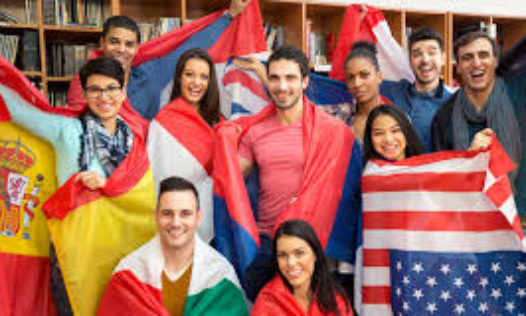Payment is being processed. Please do not refresh or close this page until your payment is complete.
 Book an Appointment
Book an Appointment

Embarking on the journey of studying abroad is both a thrilling adventure and a daunting challenge.
For international students, the stakes are incredibly high; it's not just about excelling academically but also about adapting to an entirely new way of life.
The journey of studying abroad goes far beyond securing admission; it’s about navigating and thriving in a foreign academic landscape with its unique set of challenges.
Here’s a comprehensive guide to overcoming these hurdles and making the most of your international education experience.
Surviving First, Then Thriving
Securing admission to a prestigious university abroad is just the first step.
Surviving in a new environment with its own set of rules and challenges is crucial.
The next two months, August and September, are critical for undergraduate and graduate students preparing for this transition.
It's estimated that over 1 million international students start their academic year in the U.S. during these months.
It’s essential to focus on orientation and understanding do’s and don’ts to avoid pitfalls.
Understanding Local Regulations
Many international students fall prey to misunderstandings about local rules and regulations.
For instance, a student was deported because a professor unknowingly asked them to do freelance work, which was against their visa regulations.
According to the Student and Exchange Visitor Information System (SEVIS), in 2022 alone, over 2,000 international students faced disciplinary actions due to visa violations.
Such incidents highlight the importance of being well-versed with the legalities of working hours and other restrictions for students.
Upskilling: The Era of AI and Data Analytics
In today’s competitive job market, upskilling is non-negotiable.
The era of AI and Data Analytics is upon us, and staying ahead requires continuous learning.
A report by the World Economic Forum predicts that by 2025, 85 million jobs may be displaced by a shift in the division of labor between humans and machines.
India offers affordable training opportunities, making it a powerhouse for acquiring new skills.
Regardless of your discipline, training with legitimate bodies in fields like Low Code No Code, and Generative AI is essential.
The period from 2020-2030 is marked by rapid technological advancements, and staying updated is crucial.
Professional Development: Building Your Brand
In the professional world, you are your biggest brand ambassador.
Building a strong personal brand is imperative.
This involves professional development, networking, and leveraging platforms like LinkedIn.
As of 2023, LinkedIn has over 930 million members in more than 200 countries and territories.
Making LinkedIn your best friend can open doors to numerous opportunities.
Remember, investing in your personal and professional growth is as important as your academic endeavors.
Navigating Financial Investments Wisely
While significant financial investments in academics are common, being penny-wise and pound-foolish can be detrimental.
The average cost for international students in the U.S. ranges from $20,000 to $50,000 per year, excluding living expenses.
Spending crores on education without preparing for the challenges can lead to unnecessary stress.
It’s important to balance academic expenses with strategic investments in personal growth and skill development.
Avoiding Plagiarism
Academic integrity is paramount. Plagiarism is a serious offense and can jeopardize your academic career.
A study by the International Center for Academic Integrity found that 68% of undergraduate students admitted to some form of cheating.
Understanding and adhering to academic standards is essential to avoid unintentional mistakes that could have severe consequences.
Community and Impact-Based Activities
Engaging in community and impact-based activities enriches your experience and enhances your resume.
Volunteering, participating in clubs, and contributing to local communities provide a sense of belonging and purpose, making your time abroad more fulfilling.
According to a 2022 survey by the Corporation for National and Community Service, 30% of college students in the U.S. engage in volunteer activities.
Utilizing Career and International Cells
Universities offer numerous resources like career cells and international student cells.
Utilizing these resources efficiently can provide guidance, support, and networking opportunities crucial for your academic and professional journey.
Data from the National Association of Colleges and Employers (NACE) indicate that 86% of institutions provide career counseling services that are underutilized by students.
Tailoring Advice from Relatives
Advice from relatives abroad can be valuable, but it’s essential to recognize that their experiences might not align with your specific circumstances.
Each journey is unique, and what worked for them might not work for you.
Tailoring their advice to fit your situation is crucial for making informed decisions.
Source: https://economictimes.indiatimes.com/nri/study/surviving-and-thriving-a-comprehensive-guide-for-international-students/articleshow/113063170.cms